Can you teach a love for adventure?
Adventure-based learning has become a rite of passage for teenagers in Singapore.
It was winter of 1973 and Singaporean L. Shanmugam waited at the guardhouse of a building in the small town of Hermannsberg, Germany. The Outward Bound Singapore (OBS) instructor hoped for the once-in-a-lifetime chance to call on Kurt Hahn, the father of experiential education and founder of Outward Bound.
When a staff member told him that the elderly Hahn was a sick and frail man who did not entertain guests, Shanmugam persisted. He said he had hitchhiked his way from Wales to Germany, braving the brutal cold and crossing the Alps just to meet Hahn – if that was not the spirit of adventure, what was?
The next moment, the gates opened and he was ushered in. It was a surreal and exciting experience to finally meet Hahn, he recalled.
Over lunch, Shanmugam shared that he had come from a faraway country called Singapore. He talked about how the tropical island had little experience with mountaineering, polar exploration or extreme landscapes. Despite the limitations, this did not stop young Singaporeans from continuing to follow in Hahn’s rich legacy of outdoor learning.
The origins of adventure education
Born in Germany, Kurt Hahn resisted growing up in a rigidly academic and authoritarian schooling environment. That sparked the beginnings for Hahn’s philosophy of experiential learning. He felt that schools should promote character-building, beyond just rote memorization and tests.
In 1920, Hahn was the founding headmaster of Schule Schloss (Castle School), a private boarding school in Salem, Germany. He developed a set of principles called “The Seven Laws of Salem”, which advocated to give children the opportunity for self-discovery, to develop humility, to experience periods of silence, train the imagination and to erase their sense of privilege.
As the founder and headmaster of Gordonstoun School in Scotland in 1934, his students underwent regular sailing expeditions and hill-walking. One important element was the emergency rescue service at Gordonstoun School. His students learnt to fight fires, track down missing hikers and rescue sailors from shipwrecked boats along the coast.
During the Second World War, Hahn proposed to start a new kind of school in Aberdovey in Wales to train youths: a one-month course involving expeditions across three mountain ranges, rescue training and volunteer work in the local community. In 1941, Outward Bound was born. It was coined after the nautical term for ships leaving safe harbors for the unknown.
Hahn was not the only one who believed that the outdoors could significantly shape the personal development of young people. Another revolutionary figure was Lord Robert Baden-Powell, a British Army officer, avid explorer in his school days and author of the highly influential manual “Scouting for Boys”.
In 1907, Baden-Powell gathered 22 boys from upper-class families and working-class homes to Brownsea Island. It was the world’s very first Scout camp, centered on the spirit of adventure, learning by doing and self-reliance. This paved the way for a new worldwide Scout movement that would spread across the globe.
Bringing the Outward Bound spirit to Singapore
Eighty years on, the unique model of experiential education has expanded far and wide.
Outward Bound has developed into a global network of over 35 schools spanning six continents, and been adopted as a national policy by Singapore.
In 1967, the Outward Bound School of Singapore (later renamed Outward Bound Singapore) was set up, shortly after the country gained independence. It was founded by the then Minister for the Interior & Defence Goh Keng Swee, who felt it was crucial to develop the country’s only natural resource – its people.
For a country to prosper, producing strong leadership and men of action was crucial, said founding Prime Minister Lee Kuan Yew in a 1965 speech. More than just book smarts, the education system should groom a “fighting, effective generation with the guts and will to survive,” he said.
The school was initially established in an abandoned quarry on Pulau Ubin, an island northeast of mainland Singapore and one of the few terrains left largely untouched by modernization. It had prawn ponds, granite quarries, a few kampongs (villages), old rubber plantations, mangrove swamps and some stretches of beach. The pioneers hunted for trees in the nearby mangrove swamps for the wood to build obstacle courses and salvaged tyres and planks washed ashore.
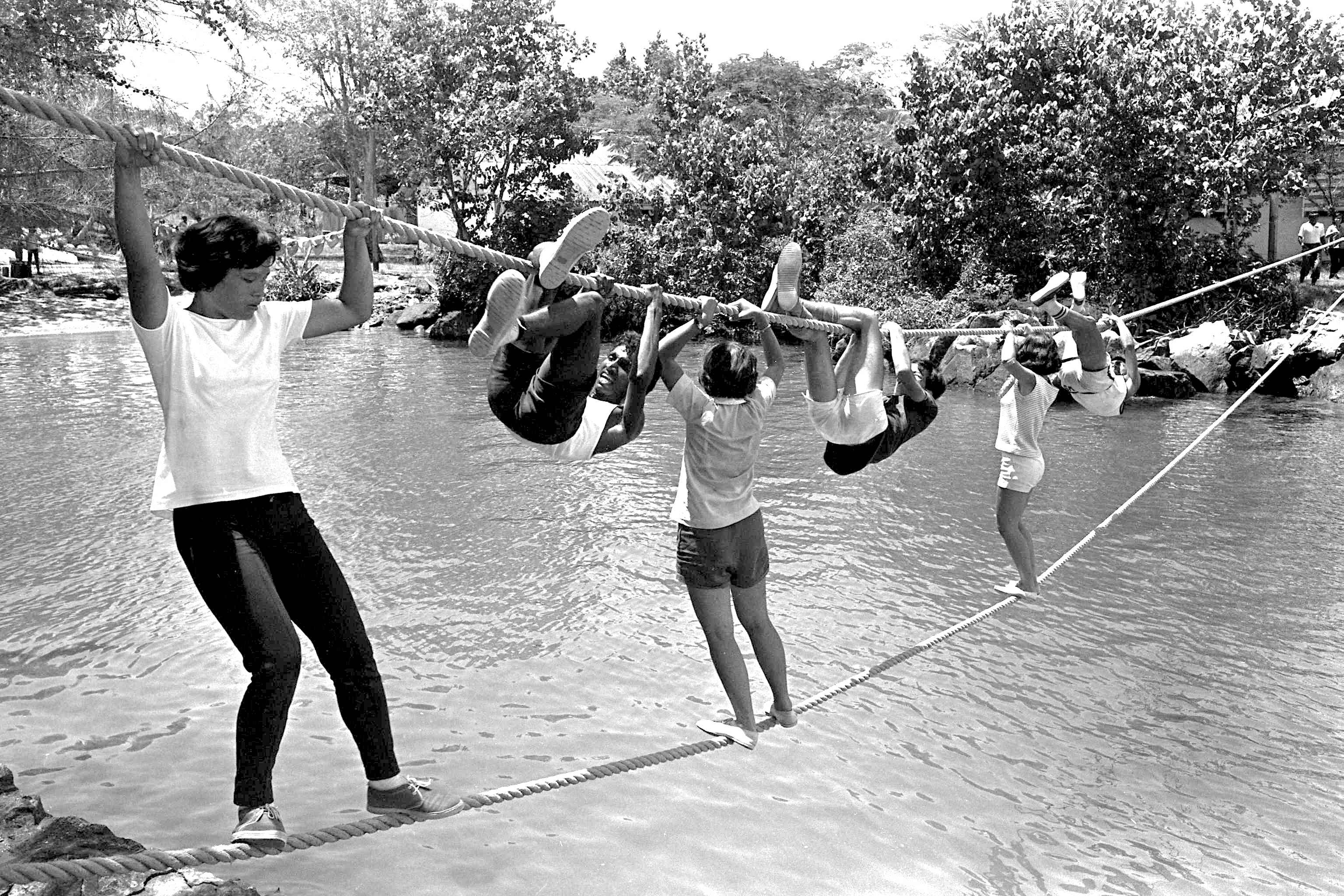
Among these pioneer instructors was Shanmugam, who held a stint from 1968 to 1972. Despite the absence of guidelines and operation procedures at the start, the instructors gamely came up with their own ideas to lead trainees as best as they could.
Today, it has come a long way from its humble beginnings. Now part of Singapore's National Youth Council, OBS has evolved into a national outdoor adventure institution which aims to build a mentally and physically resilient youth and instil in them teamwork, leadership, social responsibility and compassion. Over 500,000 Singaporeans have participated in its activities to date.
Under the National Outdoor Adventure Education Master Plan announced in 2016, all Secondary 3 students (typically 15-year-olds) will get to experience a five-day expedition-based program.
The first purpose-built modern Outward Bound Centre in the world was built on Pulau Ubin and it comprises high and low element obstacle courses, dorm blocks, a medical centre, and a fleet of sea craft for training and transport.
Students undergo a mix of land, water and height activities – from scaling a 28m-high tower modeled after Patagonia’s Cerro Torre treacherous ice crevasses and river crossings to crawling through an artificial underground cave system in total darkness.
They also undergo strenuous treks, discovering more about mainland Singapore and Pulau Ubin, embark on kayaking and sailing expeditions, and experience the shared camaraderie of learning to cook and sleep in makeshift shelters in the outdoors.
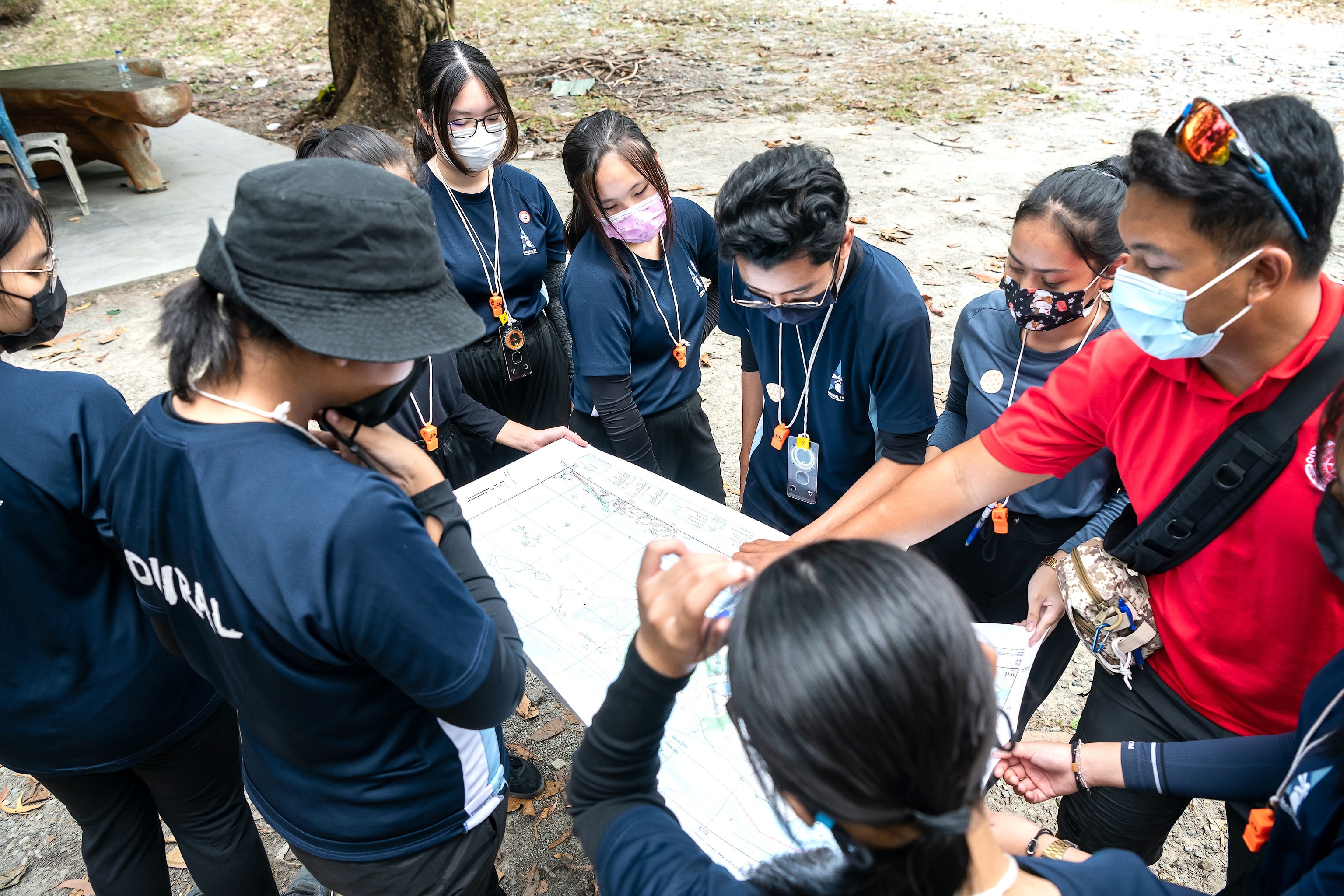
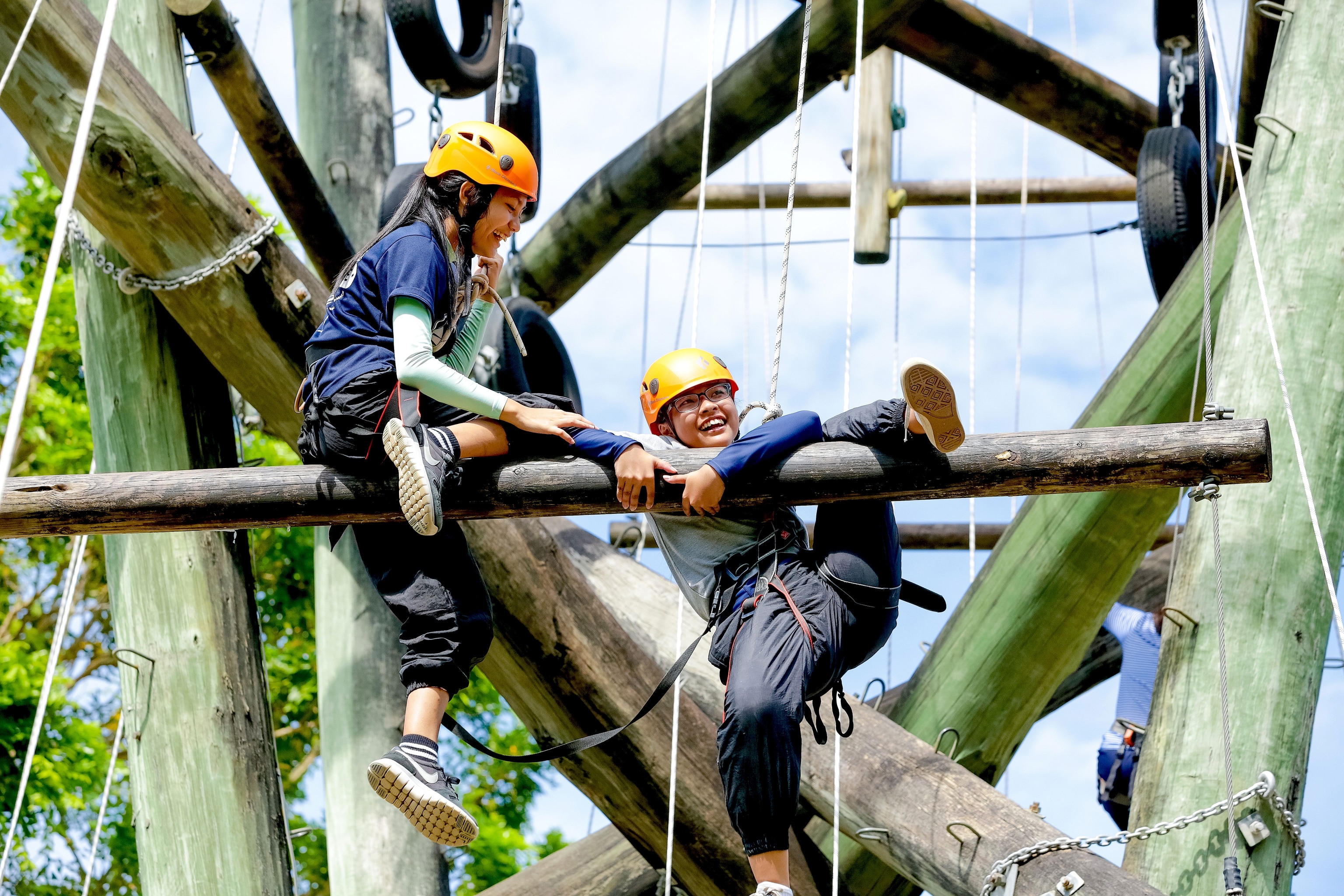
Being in nature also creates numerous teachable moments, from lessons on environmental conservation, leadership skills, among other mental and psychological benefits.
In a study, it found that students reported higher satisfaction, mindfulness and lower stress levels after a nine-day hike through the German, Austrian and Italian Alps. Research has shown that integrating structured outdoor programs into the school curriculum is also ideal for children from less privileged backgrounds.
Through the program, teachers in Singapore reported seeing their students more engaged, confident, resourceful and motivated.
The driving force behind the program are the OBS instructors, a special breed of men and women who double up as mentors, and older brothers and sisters to the youths under their charge. Under their encouragement and guidance, participants brave the natural elements, face their fear of heights or water and undergo the true test of tenacity and grit.
Since then, participants have gone on overseas OBS programs to traverse challenging new frontiers, from white-water rafting in India, ice climbing in China to trekking in the Oman desert.
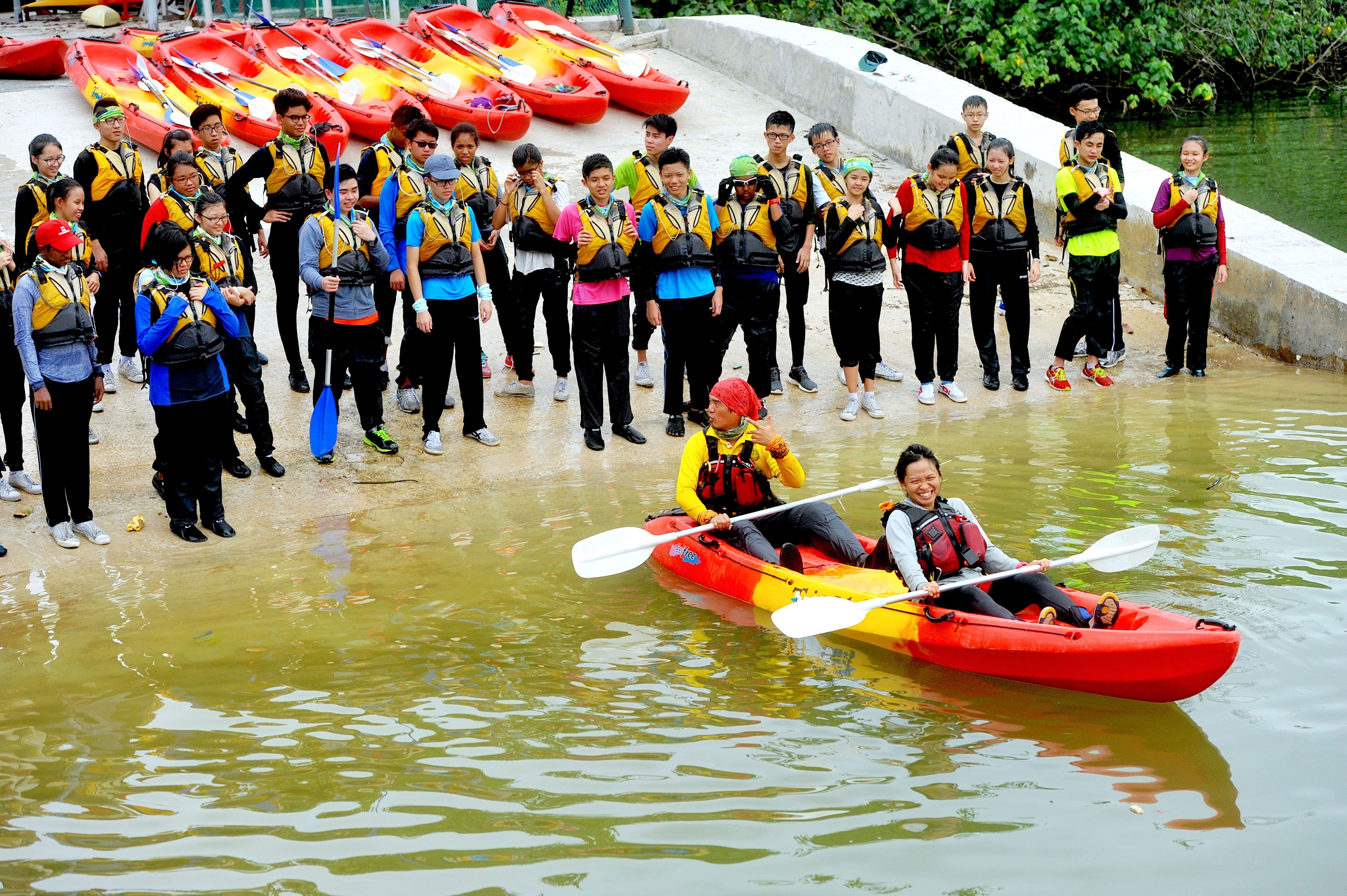
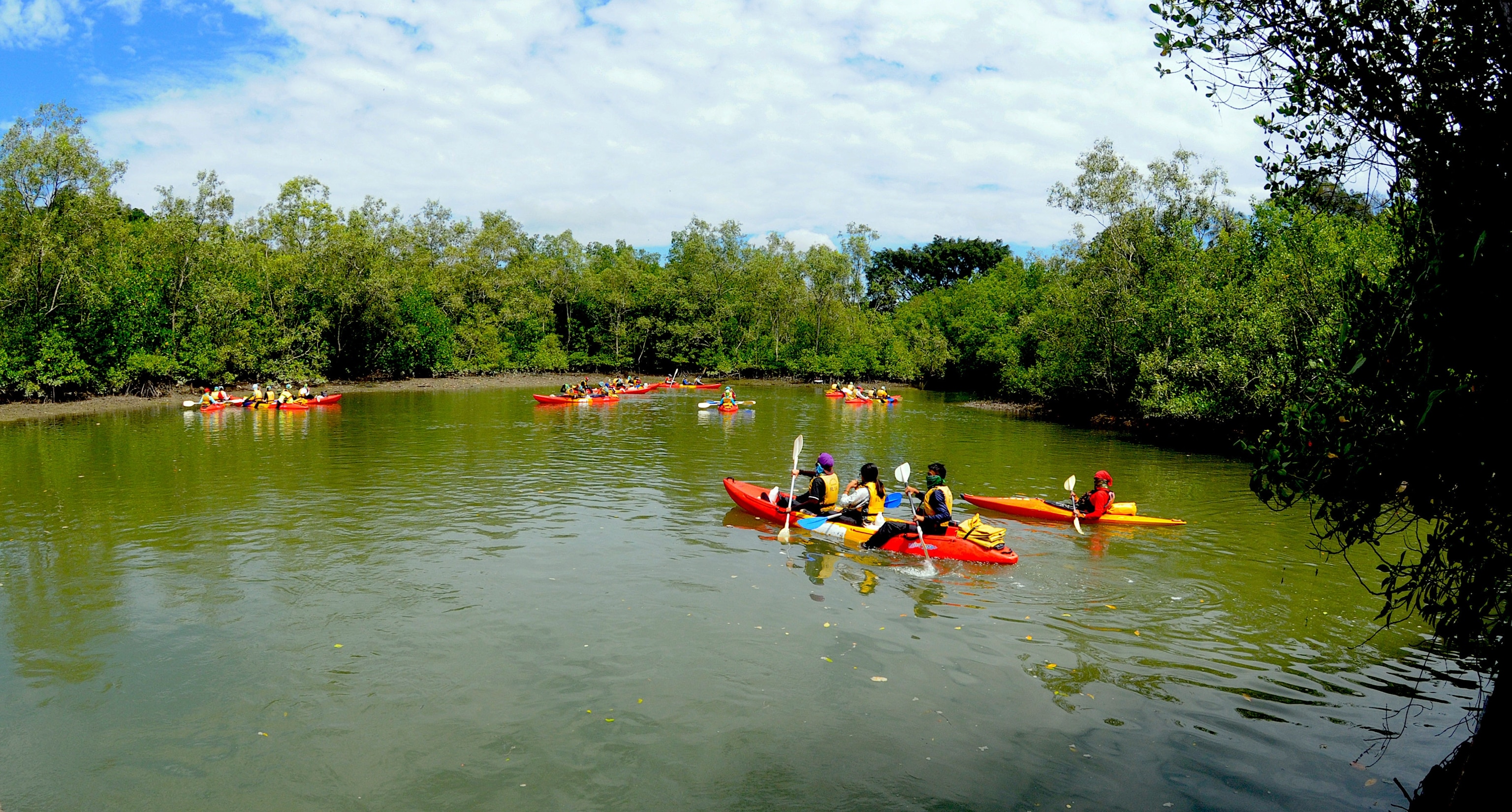
Today, the mission of OBS is more relevant than ever, said Singapore’s Prime Minister Lee Hsien Loong in a speech at OBS’ 50th anniversary celebrations.
Recalling fondly his memories of his student days at OBS in 1967, he said those 17 days had a lasting impact on him.
“Our children are growing up in a much more developed and urbanized environment. There are fewer opportunities to rough it out in the outdoors, and shelter from bad weather is usually just a few steps away.”
“We want all our young people – girls as well as boys, to be rugged and tenacious, adaptable and resourceful…. Outdoor adventure learning is especially useful in imparting these lessons, which are very hard to teach in the classroom,” he added.
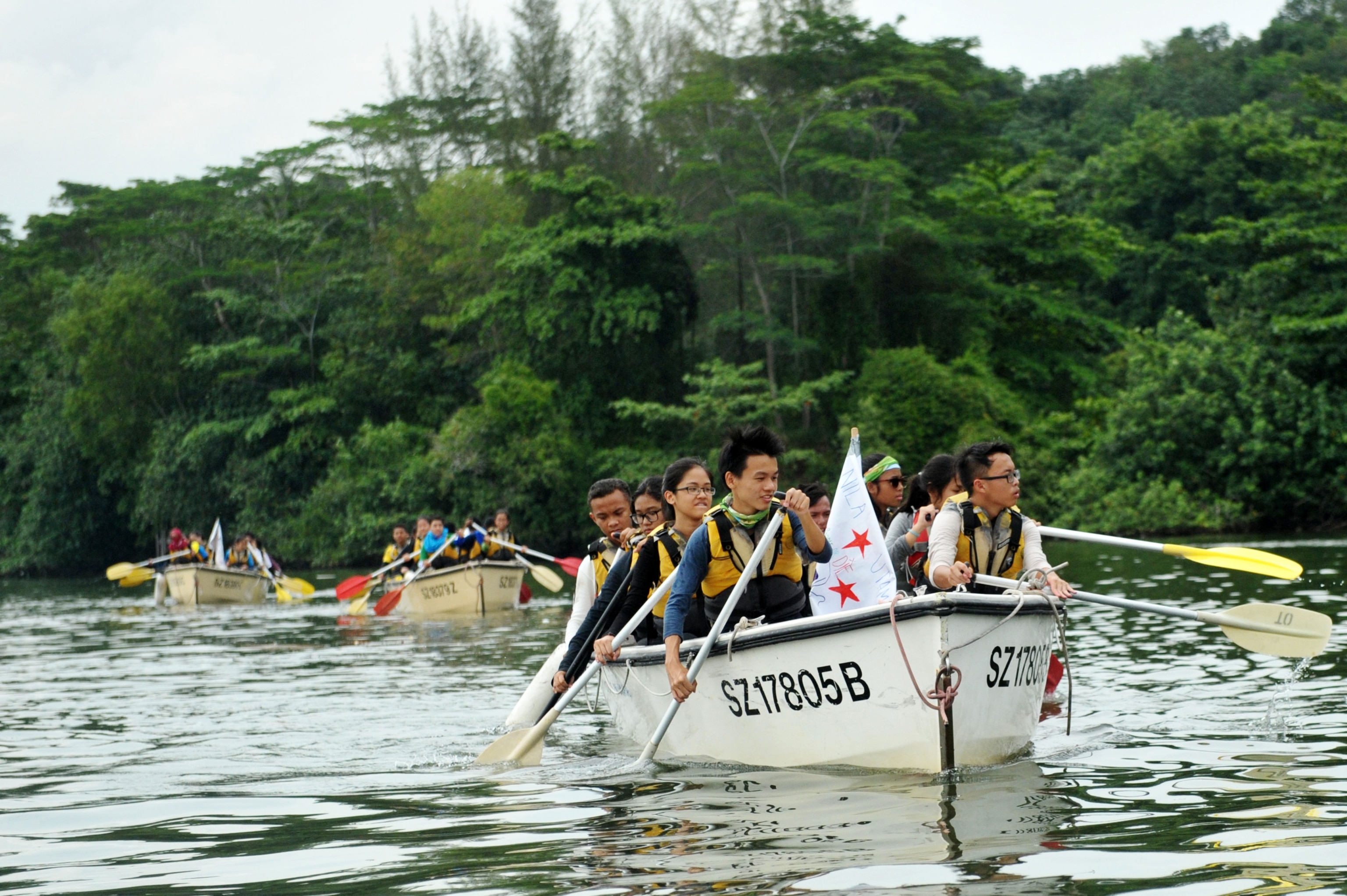
Singapore is already gearing itself up for that vision. Construction is underway for a new OBS campus on Coney Island (Singapore), with an expanded capacity to accommodate even more students every year.
In retracing Hahn’s footsteps, a tiny tropical island has discovered the act of communing with the outdoors brings a certain kind of magic. As Hahn once said, “There exists within everyone a grand passion, an outlandish thirst for adventure, a desire to live boldly and vividly through the journey of life."
Some images were taken before Singapore’s tightened COVID-19 restrictions.